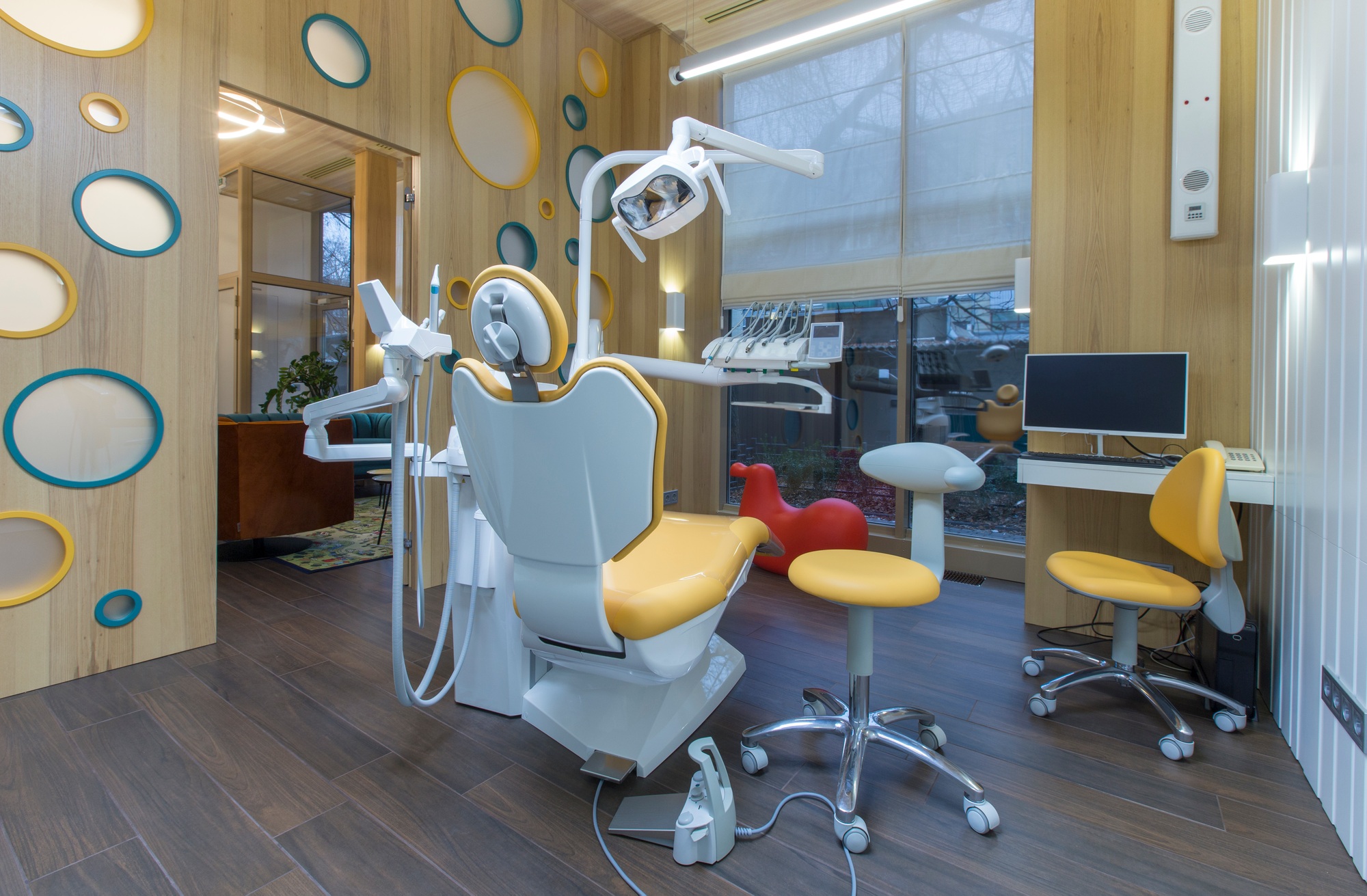Sedation Dentistry - San Francisco, CA
Anxiety-Free Dentistry
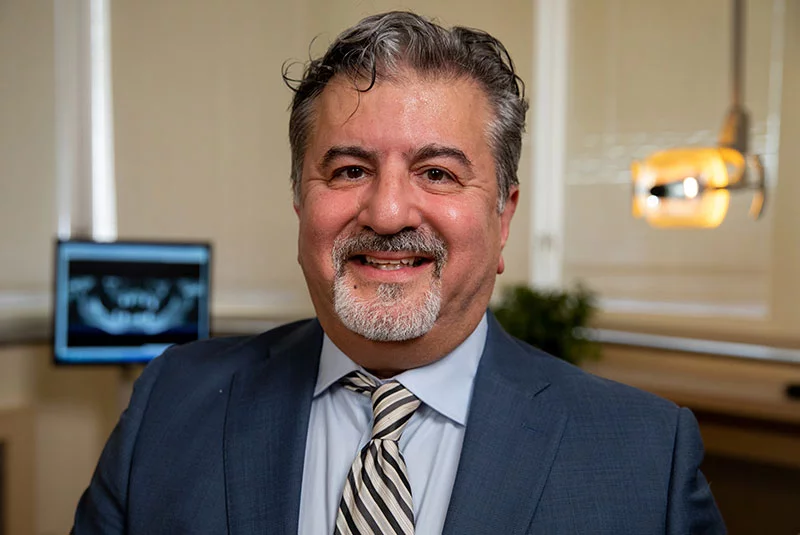
Welcome to SF Smile Doctor
Dental Care Without Stress – Leave Your Worries Behind!
If the thought of visiting the dentist causes you fear and anxiety, we understand your struggle. Put your worries aside and make your dental experience as comfortable as possible during your visit. At SF Smile Doctor in San Francisco, CA, we have a unique combination of positivity, comfortable amenities, and minimally invasive dental technology, allowing our patients to get the care they need while being comfortable throughout the process. Not only that, but we offer sedation dentistry services to customize to the unique level of fear, helping to minimize any worries or anxiety you may feel. This can even be used to combine multiple dental anesthesia treatments into one efficient appointment, which will reduce the number of visits you need. Our sedation dentistry treatment will not only put your fears to rest but also transform your relationship with dentistry and enhance the appearance of your smile.
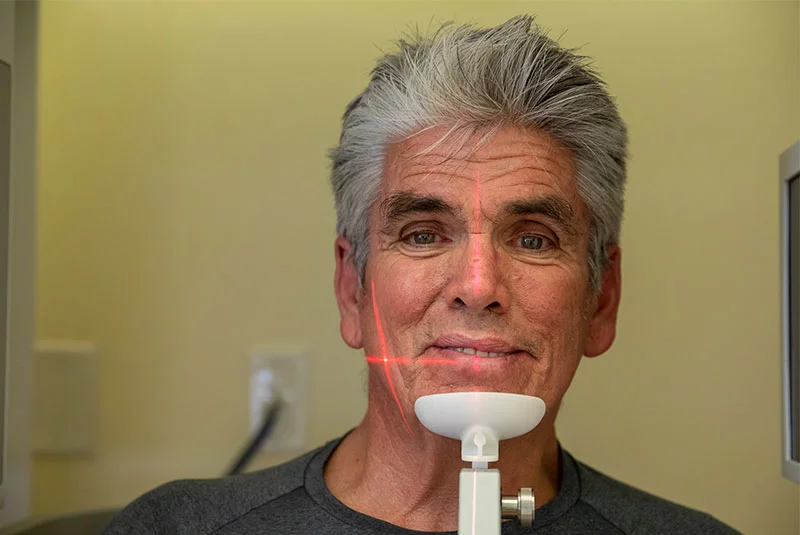
Do You Need Sedation Dentistry?
- Fear of the dentist
- Sensitive gag reflex
- Low pain threshold
- Dental anxiety
- Require multiple complex treatments
Our Sedation Dentistry Services
Oral Sedation
Oral sedation, as you could have expected, is a type of dental anesthesia medication that is ingested orally. Depending on the potency of the prescription, it can be taken up to an hour before the treatment, or directly at the dentist’s office. People might experience a mild decrease in their levels of stress, or in certain cases, a strong sedation effect which may even cause them to drift off in the chair! Because of this, it’s highly recommended to have a companion or family member accompany you and provide transportation afterwards.
Do you experience high levels of anxiety when visiting the dentist? You may be a candidate for Sedation Dentistry. Dr. Kafayi is Board Certified to administer (oral conscious) sedation, commonly referred to as “Sleep Dentistry.”
Sedation Dentistry
Advantages to patients include:
- Treatment is completed when you are in a more relaxed mood.
- You will have less difficulty sitting through a lengthy procedure.
- Multiple treatments and full mouth restorations can occur at during the same visit.
- Less discomfort after treatment.
Learn More
Anti-Anxiety Pills
The most commonly prescribed dental related drugs that treat anxiety belong to the “benzodiazepine” family. Drugs such as Valium, Halcion, Xanax, or Ativan. These drugs decrease anxiety by binding and toning down activity within “fear” receptors in the brain.
There are two different types of Benzodiazepines:
- Sedative-Hypnotics: These drugs induce calm, including drowsiness and even sleep. This sleep state is actually a form of hypnosis which is a form of physiological sleep.
- Anti-Anxiety Drugs: These are drugs which relieve anxiety and induce a state of calm and relaxation.
While benzodiazepines act as sedatives AND anti-anxiety drugs, some are highly targeted at areas within the brain which focus on sleep. Others act in a more specific way and target fear centers in the brain. In most cases, higher doses act as sedatives and induce sleep, while in lower doses, they reduce anxiety without sedation.
Benzodiazepines are also Central Nervous System (CNS) depressants (i.e. there can be a decline in blood pressure and breathing). It is important to note that they shouldn’t be mixed with other CNS depressants such as alcohol. Its important that you utilize the dose your dentist or doctor recommends. It is possible to overdose, and overdoses could lower your breathing to dangerously low levels, which could result in coma or death.
Please note that you shouldn’t travel on your own after you’ve taken any of these drugs. Make sure you have an escort, even if you traveled by bus or foot! It’s easy to become disorientated.
When not to take benzodiazepines:
Some of these drugs can affect your liver and heart. It’s important to check with your practitioner and/or pharmacist. You should be sure to inform your doctor or dentist if any of the following apply: known allergy to the drug, narrow-angle glaucoma, pregnancy, severe respiratory disease (COPD), congestive heart failure (CHF), impaired kidney or liver function, depression/bipolar disorder/psychoses, chronic bronchitis and some other conditions. It’s also important to let us know if you are taking other medications. There could be possible drug interactions.
Nitrous Oxide
Sometimes called “laughing gas,” nitrous oxide is a gaseous medication inhaled through a nasal mask. Although patients likely won’t laugh, they often feel drowsy and relaxed throughout their treatment. With this sedation, patients will remain conscious, relaxed and responsive throughout their care. After treatment is done, the nitrous oxide is stopped, so only oxygen is breathed until the mask is removed. The effects will wear off quickly, allowing you to drive yourself home.
Nitrous Oxide is a sweet-smelling, non-irritating, colorless gas which you can breathe. Nitrous Oxide has been the primary means of sedation in dentistry for many years. Nitrous oxide is safe, the patient receives 50-70% oxygen with no less than 30% nitrous oxide.
The patient is able to breathe on their own and remain in control of all bodily functions. The patient may experience mild amnesia and may fall asleep, not remembering all of what happened during their appointment.
Learn More
advantages Of using Nitrous Oxide
- The depth of sedation can be altered at any time to increase or decrease sedation.
- There is no after effect such as a “hangover”.
- Inhalation sedation is safe with no side effects on your heart and lungs, etc.
- Inhalation sedation is very effective in minimizing gagging.
- It works rapidly as it reaches the brain within 20 seconds. In as little as 2-3 minutes its relaxation and pain killing properties develop.
Reasons to not use Nitrous Oxide
You should not utilize Nitrous Oxide if you have been diagnosed with chronic obstructive pulmonary disease (COPD). Though there are no other major contraindications to using nitrous oxide, you may not want to use it if you have emphysema, exotic chest problems, M.S., a cold or other difficulties with breathing.
You may want to ask your dentist for a “5 minute trial” to see how you feel with this type of sedation method before proceeding.
IV Sedation
Intravenous Sedation (“Twilight Sedation”)
Administered intravenously, this type of sedation puts patients into a sleeplike state, though they will remain awake during their procedure. With amnesic effects, many patients who receive IV sedation may forget parts of their care or the entirety of their treatment. IV sedation is an ideal choice for patients with more severe anxiety and those needing more complex treatments. With some lasting effects, patients will need someone to drive them home after their visit.
Our office offers our patients the option of Intravenous Sedation, also referred to as Dental Intravenous Anesthesia, or “Twilight Sedation,” for their dental treatment. This is what sets our office apart from other dental practices; it is our niche.
Intravenous Sedation or “twilight sleep” helps you to be comfortable and calm when undergoing dental procedures. Your treatment can be completed for you under intravenous sedation, if you so desire. Intravenous sedation or “IV sedation” (twilight sedation) is designed to better enable you to undergo your dental procedures while you are very relaxed. It will enable you to tolerate as well as not remember those procedures that may be very uncomfortable for you. IV sedation will essentially help alleviate the anxiety associated with your treatment. You may not always be asleep but you will be comfortable, calm and relaxed, drifting in and out of sleep – a “twilight sleep”.
If you choose the option of intravenous sedation your IV sedation/anesthesia is administered and monitored by Dr. Kafayi, therefore eliminating the costly expense of having your treatment carried out in an operating room or same-day surgical facility.
How is the IV Sedation Administered?
A thin needle will be introduced into a vein in your arm or hand. The needle will be attached to an intravenous tube through which medication will be given to help you relax and feel comfortable. At times a patient’s vein may not be able to sustain a needle for the length of the procedure. In this case, the medications will be administered and the needle retrieved. Both scenarios will achieve the same desired level of conscious sedation. Once again some patients may be asleep while others will slip in and out of sleep. Some patients with medical conditions and/or on specific drug regimens may only be lightly sedated and may not sleep at all.
The goal of IV sedation is to use as little medication as possible to get the treatment completed. With IV sedation, a constant “drip” is maintained via the intravenous tube. At any time an antidote can be administered to reverse the effects of the medications if necessary. IV sedation is very safe!
Along with IV sedation there are also different “levels” of sedation available to you in our office. There is nitrous oxide analgesia and oral sedation or nitrous oxide in combination with oral sedation – basically we can tailor the anesthesia to your need or desire. Once again, all modalities are administered and monitored by Dr. Kafayi in the safety and comfort of our office environment.
Sedation dentistry is also a great option for the elderly, the disabled, or simply- the fearful!
Sedation Dentistry for the Elderly
As we age, our oral health becomes more important than ever. Periodontal disease can lead to bone and tooth loss, which affects nearly every part of our daily lives. To lead full and active lives, we need our teeth and gums. They allow us to enjoy food, support speech and good conversation, and facilitate digestion. Dr. Kafayi is dedicated to treating elderly patients with care and commitment to comfort and health.
Elderly patients as a group tend to avoid dental visits for a variety of reasons, including: more pressing medical concerns, anxiety about treatment, the hardship of transportation, or fixed incomes. Once their oral health has reached an unmanageable point, fear and embarrassment further keep these patients away from the dentist.
For elderly patients embarrassed or fearful of their current oral state, sedation dentistry provides the opportunity for Dr. Kafayi to treat these conditions while the patient remains relaxed and unaware until “awaking” to an improved oral state!
Sedation Dentistry for the Disabled
It may be especially difficult for people with disabilities to obtain access to proper dental care. They must find a dentist who is skilled and compassionate, and who can provide services for which some dentists may not be qualified. At Dr. Sassan Kafayi, we provide the expertise, state-of-the-art-equipment, and dedication to assisting special-needs patients necessary to ensuring great oral care for our patients.
Disabled patients may face added challenges in maintaining their oral health. Their disability may make it difficult to brush or floss regularly; they may also suffer a severe gag reflex, or dry mouth as a result of medication. Dr. Kafayi meets these challenges with sedation dentistry for the disabled. Dr. Kafayi is skilled in anesthesia for special-needs patients, and can ease the fear associated with out-of-control oral hygiene with one visit.
Sedation Dentistry for the Fearful
Dental phobia is a real, often overwhelming reality for thousands of people. Negative previous dental experiences, fear of needles or drills, and severe gag reflexes are just some of the reasons people feel extreme anxiety when thinking about visiting the dentist.
If you suffer from dental phobia- fear no more! At Dr. Sassan Kafayi, we are committed to understanding the very real nature of your fears. Not only will our staff treat you with delicacy and care, but IV sedation will allow you to experience dentistry in a whole new way. While engaging in a pleasant sleep-like experience, Dr. Kafayi will be hard at work making sure you “wake up” with the results you desire.
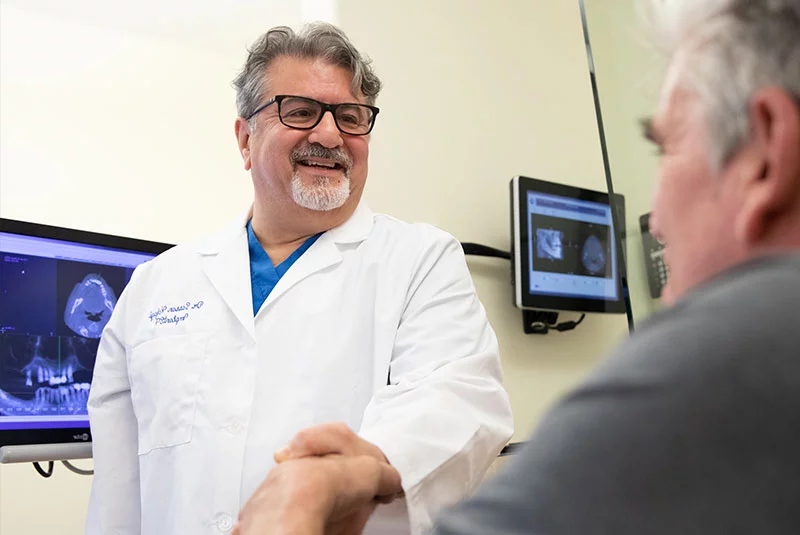
Don’t Let Your oral health become a bigger health challenge
If you feel anxious about a trip to the dentist due to sights, sounds, or smells, sedation dentistry may be the perfect solution. Many patients may not realize the important role regular dental care plays in preventing more serious issues from arising. If left unmanaged, the bacteria connected to tooth decay can disperse throughout the body, leading to potential problems such as diabetes, high blood pressure, and even cardiovascular illness.
We want everyone to feel secure and at ease during dental treatment, which is why we highly recommend exploring sedation dentistry at SF Smile Doctor in San Francisco, CA. We understand that finances may be an obstacle, which is why we are partnered with several insurance companies, (link to Insurance) to help make sure you are able to receive the dental anesthesia treatment you need during your procedure with no added stress. Don’t let your oral health become a bigger health challenge. If you are looking for dental sedation anesthesia near you contact us at SF Smile Doctor in San Francisco, CA, and find out how we can help you explore your sedation dentistry options and receive the dental care you deserve.

